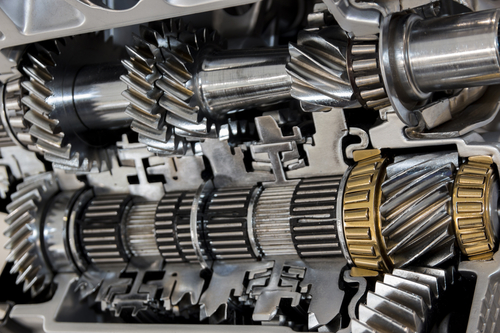There are lots of things car owners don’t want to hear from their mechanics, with a transmission repair topping the list. Even if it’s repairable, the fix is likely to end up costing a substantial amount. Just one mechanical failure involving the transmission can cause an engine to shut down completely, so it is imperative that you watch for the signs. If you think there’s a problem you should have your vehicle inspected immediately.
So how do you know if you really need a transmission repair? The following information will help you figure it out.
What Does the Transmission Do?
Transmissions play a crucial role in a vehicle’s ability to operate. Basically, transmissions carry the engine’s power to the drive axle by utilizing various gears, making it possible for the engine to run at various speeds.
Signs that Your Transmission Needs Repair
- The fluid emits a “burned” smell
- Unusual humming, grinding or clunking sounds, especially when the vehicle is in neutral
- When trying to shift, the clutch stays engaged, causes grinding noises
- Instead of smooth transitions when the gear changes, you’ll hear and often feel a thumping or grinding sensation
- The transmission pops back into neutral or slips between gears while driving
- A lag between gear changes, along with higher than normal RPMs for a gear change or speed
Transmission Repair Services
There are different transmission repair services that your car may need. Here are a few of the most common:
Transmission Fluid Change
There are two options for a transmission fluid change. A full fluid exchange following the specifications the manufacturer of your vehicle recommends. Second, a transmission fluid and filter change, also following the specifications recommended by the vehicle’s manufacturer. You are likely to avoid an expensive transmission repair if you keep up with your vehicle’s recommended transmission fluid change schedule, typically due every two years or 30,000 miles.
Transmission Flush
A transmission flush is a comprehensive transmission repair that “flushes” out the sludge and grime that has accumulated in it. First, the mechanic removes the old oil. Next, new oil and cleaning solutions (if necessary) are run through the transmission, removing damaging debris. Lastly, the transmission is refilled with new oil.
Rebuild or Replacement
In some cases, if the transmission begins to fail or stops working altogether, mechanics will recommend a replacement or rebuild. If this is the case, make sure you’re working with an auto repair shop that has a great reputation.
Transmission Repair Cost Variables
The cost of transmission repairs differ depending on the type and severity of the repairs that need to be performed. If the transmission needs to be completely replaced or rebuilt, it can end up costing you thousands of dollars. If a fluid change or just minor repairs are required, it may only cost a few hundred dollars. Here are a few transmission repair cost variables to understand:
- Automatic vs. Manual: Manual transmissions cost less to repair or replace than automatic transmissions.
- The Vehicle’s Make and Model: The make and model of the vehicle involved will play a part in how much the transmission repair will cost. In general, standard, domestic models will cost significantly less than imported and or luxury models.
- Severity of the Damage: Costs typically depend on the severity of the damage and how well the vehicle has been maintained. Sticking to recommended maintenance can make all the difference when it comes to avoiding expensive repairs.
- New vs. Old: It can be difficult to find parts for rare and significantly older vehicles which ends up increases the costs of repair.
- The Auto Repair Shop: Here’s where you really need to do your homework because auto shop charges will vary for the exact same work. Experience is key when it comes to a transmission repair and all other auto repairs for that matter. This isn’t a good time to cut corners. Also, the location can contribute a great deal to the overall cost of transmission repair for several reasons, including a higher cost of living, the availability of skilled technicians, a and a higher demand of services.
Sticking to your vehicle manufacturer’s recommended service schedule will help you avoid a costly transmission repair down the road. Also important is finding an auto repair shop that is locally respected and highly skilled. Contact us today.






Join the discussion 38 Comments